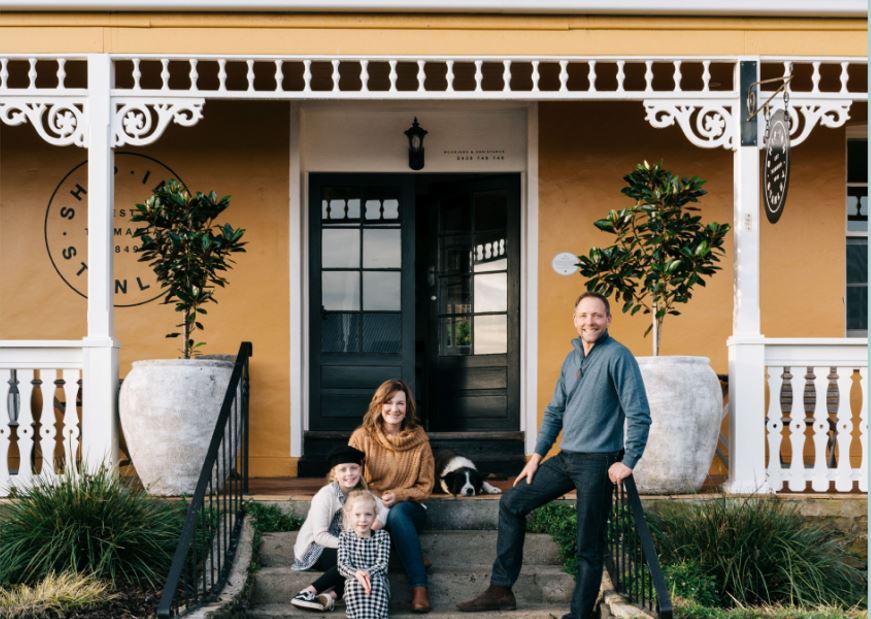The Ship Inn Stanley in Tasmania is hoping for a steadier 2022. While their state was protected from Covid for most of the pandemic, border closures and changing restrictions still made for a bumpy ride at Kerry and Alastair Houston’s award-winning guesthouse in the tourist town of Stanley.
“Last year, we averaged 83 per cent occupancy, which was amazing, but we were also averaging $1000 a day in cancellations,” Kerry says.
The volume of disruption to people’s travel was enormous, she says, and for the Ship Inn, the knock-on effect was having to manage all of those cancellations as well as roster revisions.
“We are hoping this year is steadier and that we feel more confident to make plans and follow through.”
Another challenge has been constantly staying up to date on changing hygiene requirements, Kerry says, but their chemical suppliers helped by providing the right products and the Tasmanian government provided some easy-to-follow templates.
The pair moved with their family from Hobart in 2018 and spent the first two years restoring the inn. While Alastair is a landscaper and stonemason, Kerry previously worked in healthcare in human resources, a background she says really helped her manage changing processes as Covid safety requirements evolved. “That’s a transferable skill and it’s stood us in good stead.”
Last month, the venue was named joint winner of Best Superior Accommodation (alongside the Northern Territory’s Sails in the Desert) at the Australian Hotels Association National Awards for Excellence.
Kerry says bookings are now on the rise and tracking well compared to last year. “There’s just that feeling of confidence and of people recognising that Covid is now just a part of life and that we need to get on with it.”
Hygiene product experts share their tips:
Areas that need cleaning more frequently with trusted products that have been tested effective against germs include high touch point areas such as sink faucets, door handles, TV remotes, phones, and light switches. Reception desks should be cleaned and disinfected more frequently during busy periods. Dr Lisa Ackerley, Director of Medical and Scientific Engagement, Hygiene, at Dettol Pro Solutions.
In indoor settings, the highest risk areas are where there is a crossover of different groups in your common areas. When choosing air quality equipment, consider the ongoing costs of filters, globes, etc as some units are significantly more expensive to run than others. Carl Pavett, managing director, Hunter Technologies.
When investing in air purification, look for high-efficiency particulate absorbing (HEPA) filtration devices – particularly in areas that have ‘dead air’ such as toilets, high traffic areas, and high-risk spaces where people gather. Andrew Stone, managing director, Pacific, Rentokil Initial.

